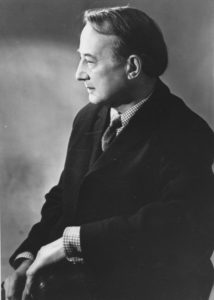
Michael Oakeshott died thirty years ago. The Michael Oakeshott Association, which is a network of scholars who share an interest in his thought, maintains an interesting website with plenty of information about him and new initiatives concerning his work. Searching “Oakeshott” on Amazon, it seems apparent that there has been considerable interest in Oakeshott since his passing. Alas, I tend to fear this interest was confined to a certain number of experts and was not properly acknowledged by the wider community of political philosophers and historians of ideas.

One of the reasons may be that Oakeshott’s work is difficult to fit in with any particular tribe in the political arena. He calls himself a conservative but, for him, conservatism is a “disposition”, an inclination, and not a particular creed. In particular, he was interested in religion, but his conservatism was quite free of any “religious” entanglement. Oakeshott once remarked that “Not to detect a man’s style is to have missed three-quarters of the meaning of his actions and utterances”. Oakeshott’s style was quite peculiar: both in writing (his prose is terse and profound at once) and in life. He was a self-confident thinker who did not search for others’ approval. He had an impressive career but somehow outside the mainstream, was remembered by friends (like Ken Minogue) as a splendid friend who cared about friendship deeply, eschewed honors, and was happy to retire in Dorset and lead a county life. In a beautiful article on Oakeshott, Gertrude Himmelfarb commented that he was “the political philosopher who has so modest a view of the task of political philosophy, the intellectual who is so reluctant a producer of intellectual goods, the master who does so little to acquire or cultivate disciples” and then all of these features perfectly fit in his character.
Oakeshott is not very popular among libertarians, either. Libertarians may be wary of him for a few, understandable reasons: he was a British idealist (that smells of Hegel!), he was a scholar of Hobbes, and he was not interested in economic matters at all. In a sense, he was not very interested in politics at all: as Ken Minogue remarked, Oakeshott wrote “Rationalism in Politics” reacting against the “rationalist” attitude prevalent in England in those years when the Attlee government was shaping the welfare and entrepreneurial state. (When conservatives came back to power, things did not change much). But that splendid essay is not a political polemic at all.
The Stanford Encyclopedia of Philosophy’s entry on Oakeshot, written by Terry Nardin, is a must read. Libertarians may enjoy this learned article by Gene Callahan, too.
Reading Oakeshott is a peculiar experience in these days of intense political polarization. It reminds us that politics should not be a totalizing part of human life and cautions us about the dangers of considering political philosophy a blueprint for political action. It impresses upon us a sense of the limits of politics as such not so much because of the existence of “individual rights” that should be respected, but because when politics becomes ambitious it becomes dangerous and grotesque at once.

READER COMMENTS
Weir
Dec 22 2020 at 4:20am
The world, Oakeshott said, “is determined not to allow events to remove themselves securely into the past; it is determined to keep them alive by a process of artificial respiration or (if need be) to recall them from the dead so that they may deliver their messages. For it wishes only to learn from the past and it constructs a ‘living past’ which repeats with spurious authority the utterances put into its mouth.”
Which is the risk that he runs now, that he would be brought back to life by some Victor Frankenstein, or a clairvoyant with a ouija board, and be deemed useful to the ventriloquists.
Comments are closed.